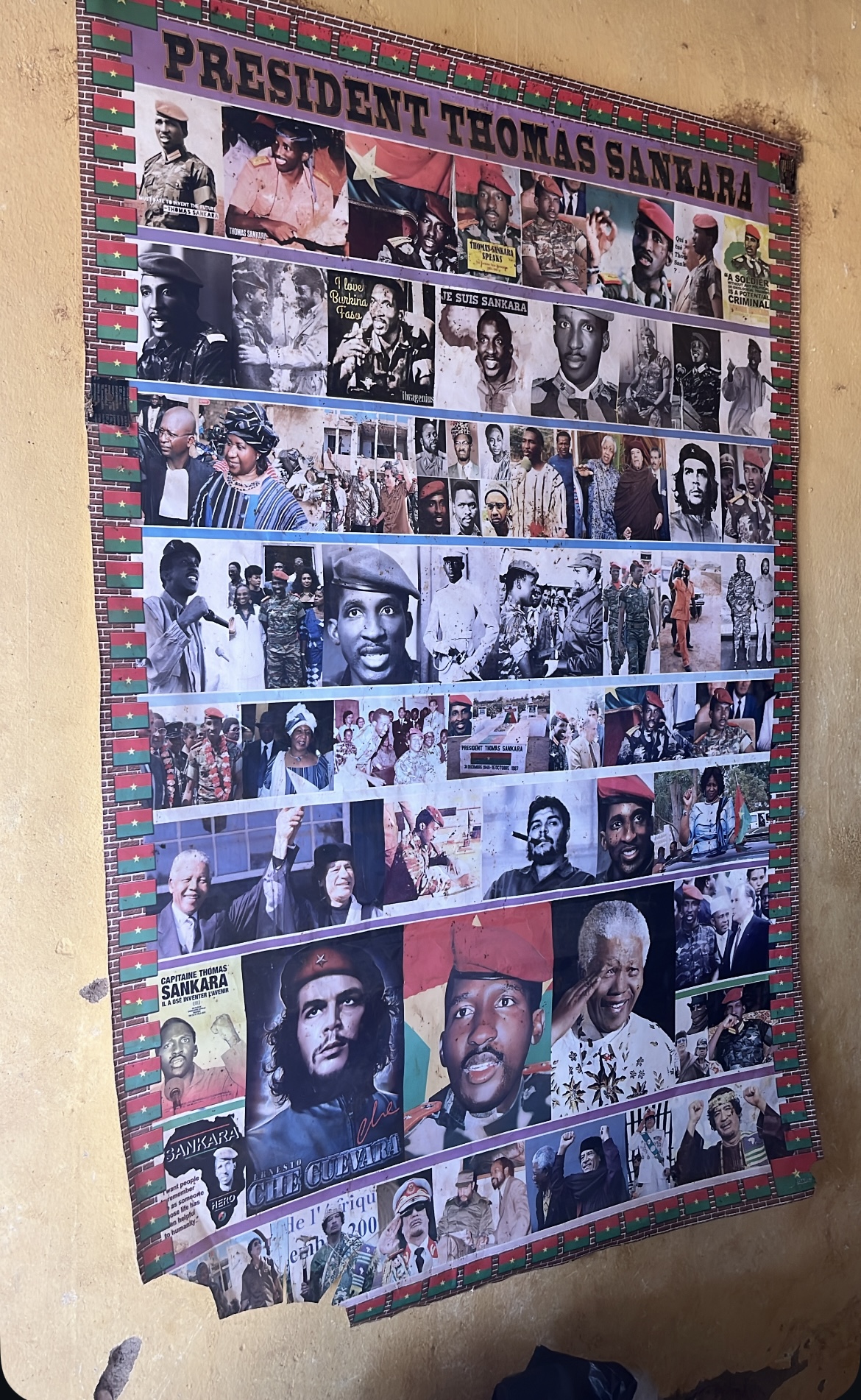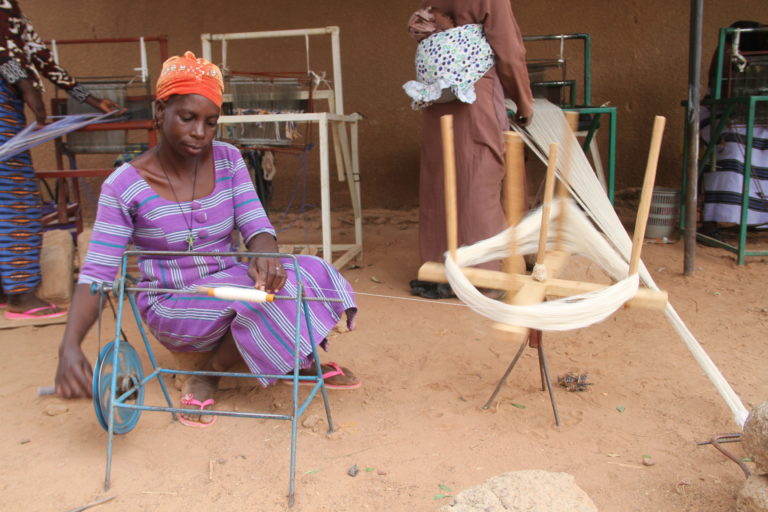Leila Bencharnia: The Politics of Softness: Cotton, Matriarchal Pedagogy, and the Disruption of Imperial Temporalities

The Opera Village is a vibrant space for exchange, education, and art. It is a place where creative minds come together to develop new perspectives and reflect on socially relevant issues. As part of our Artist-in-Residence program, several artists are currently working on projects that explore themes of decolonization, identity, history, and social change. Since October, artist Leila Bencharnia has been part of our residency program. Her current project, “The Politics of Softness: Cotton, Matriarchal Pedagogy, and the Disruption of Imperial Temporalities,” explores the complex significance of cotton as a carrier of memory, resistance, and feminized knowledge. Her work is not merely about the depiction of fabrics but a deep reflection on the relationship between materiality, history, and social structures.
Cotton is more than just a textile—it is a living archive. Its fibers hold memories of hands, wounds, rituals, and resistance. Bencharnia perceives softness not as a passive aesthetic but as an act of defiance. In a world that demands hardness, clear definitions, and speed, softness becomes an act of refusal—an invitation to listen, to slow down, and to feel.
 The images and textiles that emerge in her work can be understood as cartographic fragments of a larger, open-ended inquiry. She explores fabric not only as a medium but as a language—a grammar of resistance in which the stitch becomes syntax and cloth carries and transmits knowledge. Here, matriarchal and pedagogical constellations emerge, not as romanticized archetypes but as lived practices of world-making, intergenerational transmission, and resistance against colonial temporal structures.
The images and textiles that emerge in her work can be understood as cartographic fragments of a larger, open-ended inquiry. She explores fabric not only as a medium but as a language—a grammar of resistance in which the stitch becomes syntax and cloth carries and transmits knowledge. Here, matriarchal and pedagogical constellations emerge, not as romanticized archetypes but as lived practices of world-making, intergenerational transmission, and resistance against colonial temporal structures.
Inspired by Pan-Africanist visions, such as those once traced by Thomas Sankara, Bencharnia approaches these ideas not as rigid monuments but as living resonances within a broader movement toward autonomy. Her work is not a homage to names or personalities but to alternative ways of knowing, to collective voices, to indigenous temporalities that resist the linear dictates of colonial pasts.
 With this work, Leila Bencharnia develops a poetic yet radical engagement with memory, materiality, and resistance. She creates spaces where listening with memory becomes more important than speaking about it. Her textile practice is a practice of trust—in softness, in not-knowing, in silence. It is a cartographic search for another way of being, where tenderness becomes a strategy, and disobedience takes the form of breath. We are delighted to have Leila Bencharnia as part of our Artist-in-Residence program at the Opera Village and look forward to witnessing the further evolution of her artistic practice.
With this work, Leila Bencharnia develops a poetic yet radical engagement with memory, materiality, and resistance. She creates spaces where listening with memory becomes more important than speaking about it. Her textile practice is a practice of trust—in softness, in not-knowing, in silence. It is a cartographic search for another way of being, where tenderness becomes a strategy, and disobedience takes the form of breath. We are delighted to have Leila Bencharnia as part of our Artist-in-Residence program at the Opera Village and look forward to witnessing the further evolution of her artistic practice.
 Photos: Leila Bencharnia
Photos: Leila Bencharnia
This year’s Artist-in-Residence program is funded by




